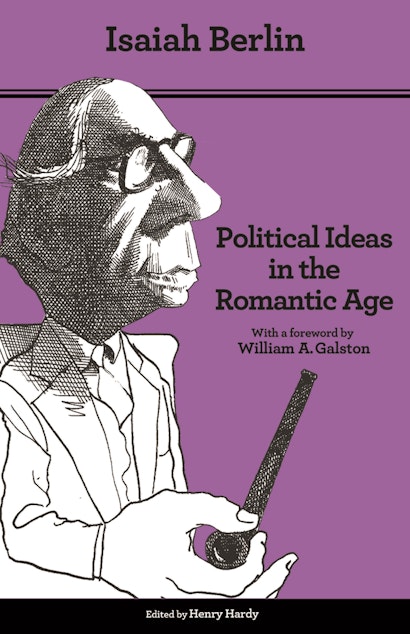This new edition features the previously unpublished delivery text of Berlin’s inaugural lecture as a professor at Oxford, which derives from this volume and stands as the briefest and most pithy version of his famous essay “Two Concepts of Liberty.?
Political Ideas in the Romantic Age is the only book in which the great intellectual historian Isaiah Berlin lays out in one continuous account most of his key insights about the period he made his own. Written for a series of lectures at Bryn Mawr College in 1952, and heavily revised and expanded by Berlin afterward, the book argues that the political ideas of 1760-1830 are still largely ours, down to the language and metaphors they are expressed in. Berlin provides a vivid account of some of the era’s most influential thinkers, including Rousseau, Fichte, Hegel, Helvetius, Condorcet, Saint-Simon, and Schelling. Written in Berlin’s characteristically accessible style, this is his longest single text. Distilling his formative early work and containing much that is not to be found in his famous essays, the book is of great interest both for what it reveals about the continuing influence of Romantic political thinking and for what it shows about the development of Berlin’s own influential thought.
The book has been carefully prepared by Berlin’s longtime editor Henry Hardy, and Joshua L. Cherniss provides an illuminating introduction that sets it in the context of Berlin’s life and work.
"Indispensable for anyone interested in the history of ideas and the development of liberal thought, it contains most of the central themes of Berlin's work, together with some of its recurring ambiguities."—John Gray, New York Review of Books
"A fine introduction to Berlin's thought, and a major addition to the corpus of his work."—Anthony Grayling, Literary Review
"In this volume, we have one of the most central sources for much of Berlin's thought. What makes Berlin such a compelling historian, and one of the very few of whom it will always be said that he is a pleasure to read, was the way that he got under the skin of people whose opinions he found, after considered thought, abhorrent. His ideas are still worth debating today, and for the foreseeable future."—Nicholas Lezard, Guardian
"An event of major importance. . . . Hitherto, students of Berlin have been like explorers searching for the source of the Nile, but with only a network of streams to go by, not a single river; now they can stand on the shores of their very own Lake Victoria, gazing at the mighty reservoir itself."—Noel Malcolm, Sunday Telegraph
"[Political Ideas in the Romantic Age] contains, in embryo, the main ideas that were to dominate [Berlin's] thought."—Raymond Carr, Spectator
"An absorbing and impressive new book . . . [that] says that we still live off the intellectual capital produced by the great thinkers of the romantic age, roughly 1760 to 1830. We think as they thought. We speak as they spoke."—Robert Fulford, National Post
"Berlin's text is substantially rich and essential for understanding the foundations of his early intellectual encounters with the minds of the Enlightenment and the Romantic age."—Choice
"[This book] is worth a look for anyone interested in a kind of original formulation of Berlin's ideas, but it also provides a new path into a great mind for those who are not yet familiar with him."—Brandon Turner, Perspectives on Political Science
"Those already interested in Berlin's scholarship will find the origins here of his broader contributions to the 'history of ideas' while at his intellectual peak."—Ann Frank Wake, Historian
"At a time when the recrudescence of romantic themes has accompanied numerous new political foundings in the post-Soviet era, and in the turmoil and realignments in the Middle East and Africa, there is a refreshing clarity in this work, and a robust comprehensiveness to his commentary on romanticist ideas—romanticism insinuated exalted, but usually volatile, new ideas in old containers. Its beguiling grandeur obscured its dangers. Berlin offers incisively critical assessments of its leading thinkers."—Peter Emberley, International Political Science Review
"Political Ideas in the Romantic Age makes an intriguing and provocative contribution to the history of ideas, and also to the study of Berlin's own thought. The ideas Berlin examines are intrinsically interesting and hugely influential. The book integrates Berlin's analysis of liberty with his reading of the debate between the Enlightenment and the counter-Enlightenment to an extent not found in his other works. And the editing is as meticulous as anything done by Henry Hardy, who is the best possible editor of any text by Berlin."—George Crowder, Flinders University, Australia, author of Isaiah Berlin: Liberty and Pluralism

